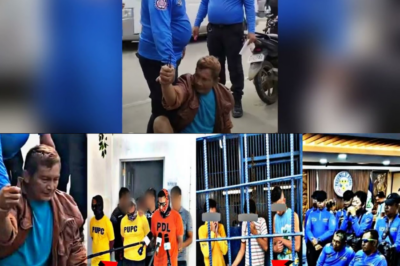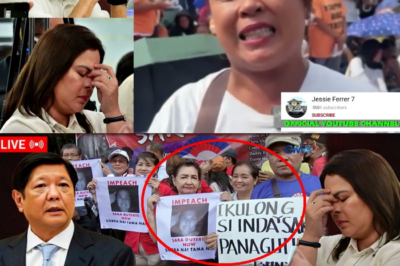When Faith and Tragedy Collide: A Father’s Choice to Forgive
On a quiet Friday night in 1992, a family’s ordinary life was shattered. What began as a routine Bible study ended with flashing police lights outside the family home and an unthinkable revelation: their fifteen-year-old daughter, Joy, had been raped — not by one man, but by seven. The details of that night haunt the telling, but what lingers longer is the response that followed: the wrenching, almost uncanny commitment of a father to hold to faith and, eventually, to forgive.
The shock was literal and immediate. Driving up to the house, the father saw the police cars and felt his mind race toward the worst possibilities: had his children been killed? The moment the missionary met them at the door, hugging them while whispering, “All your children are okay… except Joy,” condensed a thousand fears into a single, staggering sentence. The rawness of that scene — the rushed evacuation, the sterile handoff to uniformed strangers, the whispered diagnosis — marks the point at which private, familial grief became a public, spiritual test.
What makes this story unnerving and, in many ways, instructive is the collision between the rhetoric of protection and the lived reality of vulnerability. For years the father had preached promises lifted straight from scripture: “I will protect you,” “Under His wings you shall take refuge,” “No weapon formed against you shall prosper.” He’d modeled a life of devotion that built a church on the belief that faith could transform the ordinary rhythms of business and family into a habit of grace. And yet, in the face of what happened to Joy, those promises felt brittle, even absent.

In those first terrible moments the family — especially the parents — heard a different voice too: the cruel whisper of doubt. “If God cannot protect my child, why continue?” Satan, the father said, spoke that question into their hearts. The weight of it was not hypothetical. It was a force that could have toppled the very edifice of belief they’d spent years building. And for a very human moment, the father admitted, he had “the worst stuff in [his] mind” — rage, a desire for retribution, the intuitive urge that would make many parents fantasize violence against perpetrators.
But the story takes a different turn, one that is not sentimental and not easy. On the drive home, the father says, God spoke to him: “They are my children, not yours.” It was a voice both consoling and disorienting: a reminder that even in the abyss of suffering, the spiritual imperative might be less about control and more about trust. The father’s reply — “No matter what Lord. No matter what. I will keep on trusting You” — is a radical refusal to let trauma define the boundaries of his faith.
What is important here is not a tidy resolution. The story does not pretend that forgiveness is automatic, or that grief is ever simple. The father himself acknowledges the ugliness of human response: “Of course, human nature I would like to shoot them. How can a father forgive the rapists of his daughter?” That candor is crucial. Forgiveness, in this account, is not the erasure of anger; it is the hard, painstaking work of aligning one’s heart with a belief that transcends immediate impulses. It is the choice to believe that God’s goodness is not negated by evil acts, and that trust, even when irrational, is a form of obedience.
This decision shaped more than private theology. It influenced how the father led. He had not been born inside the church; his conversion came in high school, a dramatic pivot away from a nonreligious upbringing and a relentless corporate ethos. He became a pastor who believed that ministry should meet people where they are: that churches should be vigorous, relational, and practical — places where business people, smokers, and skeptics could come and find life. The church he planted, Christ Commission Fellowship (CCF), began in a living room and grew through Bible studies, mutual encouragement, and a refusal to moralize the small struggles of ordinary people. It was built on the premise that spiritual transformation happens from the inside out.
So when a crisis hit that same household, the stakes were not merely personal. The family’s response would be a theology in action — a public test of everything the father had taught. Would the church he’d nurtured continue to be a community of life and healing, or would the wound reveal a hypocrisy between preaching and practice? The father’s answer was to remain. He chose to continue, to teach, to invite, to be present. He insisted that trust in God mattered more than a neat explanation for pain. That posture helped the church keep its focus on discipleship rather than scandal.
There are other quieter, slower details here that deserve our attention. After conversion, the father described a hunger for Scripture and worship — “Those are not normal,” he admitted, if one equates them with the old life. That hunger became the soil in which his faith could take root when tragedy struck. The discipline of study, the rhythms of prayer, the embodied habit of leaning into God’s word provided some framework for the family to process their sorrow. It didn’t blunt the sharp edges of grief; it gave them language to name it, and some structure in which to grieve without losing themselves.
And yet the road from horror to forgiveness is neither linear nor entirely visible. The transcript offers a glimpse: prayer, a surrendering of the impulse toward vengeance, a deliberate choice to trust. But healing — for Joy, for her parents, for the congregation — is a long arc that includes counseling, community support, and the slow reclamation of safety. For communities of faith, the imperative is to create spaces that acknowledge the depth of trauma without forcing premature closure. To preach forgiveness is one thing; to walk beside survivors in their pain — to sit with the anger, the shame, the sleepless nights — is another.

There is a cultural lesson here, too, about how leaders respond when their private lives become public tragedies. In a moment when many religious institutions have been judged by how they handle scandal, this family’s narrative is instructive because the leader did not flee. Instead, he asked a question central to faith under pressure: “Will you trust me?” It is a question many believers will recognize as a test of faith in extremis. It does not ask for an explanation of suffering; it asks for a posture — a decided orientation of the heart.
Most of all, the story is a testament to the messy, courageous work of forgiveness. It is not a call to forget, minimize, or absolve harm. It is a call to refuse to be owned by it. The father did not pretend his desire for retribution vanishes. He named it and then, by faith, resisted it. That resistance did not mean a simple triumph over evil; it meant living into a hope that somehow, in the midst of violation, God’s goodness could still be trusted.
The memory of that night will never be fully exorcised. But what remains, finally, is a portrait of a family and a pastor who refused to let tragedy become the last word. Instead, they let grief deepen their resolve — to serve, to lead, to love — and to believe, stubbornly, that trust can survive the worst that life throws at us.
Full video:
News
Pag-asa vs. Pagtataka: Ang Emosyonal na Laban ni Kris Aquino, Binatikos ng Publiko at mga Kolumnista Dahil sa ‘Negatibong’ Pagtugon sa Sakit
Pag-asa vs. Pagtataka: Ang Emosyonal na Laban ni Kris Aquino, Binatikos ng Publiko at mga Kolumnista Dahil sa ‘Negatibong’ Pagtugon…
Ang Madilim na Tagpo sa Likod ng Tagumpay: Trahedya ni Lee Sun-kyun, Tila Isang Epekto ng Parasite na Buhay
Ang Madilim na Tagpo sa Likod ng Tagumpay: Trahedya ni Lee Sun-kyun, Tila Isang Epekto ng Parasite na Buhay Sa…
HIMAS-REHAS NA ANG LTO ENFORCERS SA BOHOL: LIMANG ABUSEDONG KAWANI, SINIBAK AT KAKASUHAN DAHIL SA LABIS NA PAGGAMIT NG PWERSA LABAN SA ISANG MAGSASAKA
Ang Hiyaw ng Hustisya sa Bohol: Paano Nag-viral na Karahasan sa Isang Magsasaka ang Nagdala ng Mabilis na Paglilinis sa…
Buhay o Pera? Lalim ng Digmaan sa E-Sabong: Lihim ng mga Missing Sabungero, Sisilipin na sa Ilalim ng Taal Lake Habang Bilyonaryong Industriya, Binabangga ng CCTV Scandal
Buhay o Pera? Lalim ng Digmaan sa E-Sabong: Lihim ng mga Missing Sabungero, Sisilipin na sa Ilalim ng Taal Lake…
CARLOS YULO: “NANGARAP AKONG MAG-QUIT,” PERO DALAWA ANG GINTO MULA SA PARIS 2024—ITO ANG LIHIM NA PAGBABAGO SA KANYANG BUHAY
CARLOS YULO: ANG PAGLAYA NG HININGA MATAPOS ANG GINTO—MULA SA PANGANAIS NA SUMUKO, TUNGÓ SA DALAWAHÁNG OLYMPIC CROWN Hindi pa…
LIBO-LIBO NAGTIPON SA EDSA, SIGAW AY ‘IMPEACH SARA’: Kontrobersyal na ₱125M Confidential Funds, Nag-alab sa Galit ng Sambayanan
Hiyawan ng Hustisya: Ang Nag-aalab na Panawagan para sa Impeachment ni VP Sara Duterte sa Gitna ng Krisis sa Pondo…
End of content
No more pages to load







